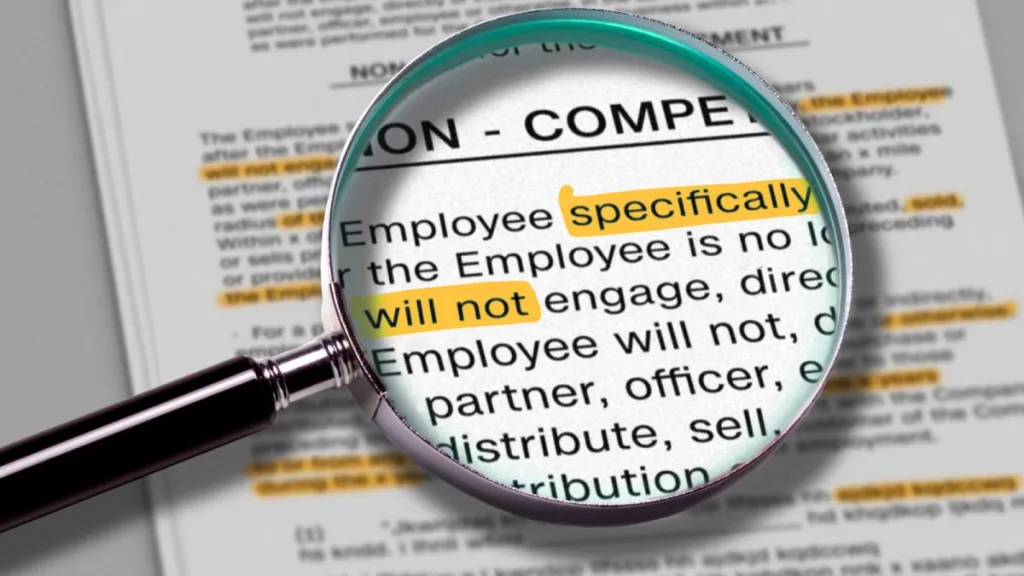
Article written by: Jeremy V. Farrell, Esq., Ryan James, Esq. and Michael A. Cassidy, Esq. of Tucker Arensberg, P.C.
On January 5, 2023, the Federal Trade Commission (FTC) took a dramatic step by proposing a new rule that would prohibit companies from entering into non-compete agreements with its workers. The proposed rule, if approved, takes sweeping action to prohibit employers from entering into non-compete agreements with both employees and independent contractors. And the proposed rule does not stop there. It would also require that employers take affirmative steps to rescind existing non-compete clauses and explicitly inform workers that the contracts are no longer effective.
As of right now, the FTC’s rule (available here) is merely a proposal, and the agency is soliciting public comments on whether any changes should be made before it is finalized. Litigation challenging the enforceability of the rule is almost sure to ensue, and the U.S. Chamber of Commerce has already threatened to sue to FTC over its proposed non-compete ban.
Regardless of whether or not the FTC rule is adopted, physician non-compete agreements are closely scrutinized in Pennsylvania under a multi-tiered analysis because of the value of doctors’ services to the public. Initially, the covenant in order to be enforceable must be “reasonably related to the protection of a legitimate business interest*.” As recognized in Wellspan, this type of interest includes showing that a non-competition provision is necessary to protect such things as trade secrets and confidential information, unique or extraordinary skills, customer goodwill, patient relationships, patient referral bases, and investments in an employee’s specialized training. If a post-employment covenant merely seeks to eliminate competition and is not designed to protect a legitimate business interest, it will not be enforced.

If the threshold requirement of a protectable business interest is satisfied, courts will then balance the employer’s interests against that of the employee to find other work in her field and earn a living. Under this factor, the temporal and geographic restrictions imposed on a former physician must be reasonably limited**. If not, the non-compete provision will not be upheld.
After the second step, the interests of the public will be assessed as they are of “paramount importance in the context of non-competition covenants for physicians.” This in essence means that courts will examine whether there is a shortage of physicians in the particular practice area in the relevant geographic region. If patient demand in the geographical area exceeds the ability of appropriately trained physicians to provide expeditious, skilled treatment, the public interest supersedes a right to enforce a non-compete agreement. Following Wellspan, courts in Allegheny County have viewed this factor as critical*.
As we can see, even without the implementation of the FTC rule, an employer faces significant hurdles in attempting to enforce a physician non-compete agreement.
Furthermore, many early comments suggest the FTC proposal would not apply to non-profit healthcare systems, based upon the FTC’s actual jurisdiction and the definition of “employer” in the proposed rule itself. Given the prevalence of non-profit healthcare systems nationwide, and especially in Pennsylvania, it remains to be seen whether this rule would have any significant impact in the healthcare arena.
The Allegheny County Medical Society has been collaborating with various Pennsylvania state legislators over the past few years to restrict or eliminate physician restrictive covenants. The most recent legislative action was the introduction of HB 681 of 2019, the Healthcare Practitioner Non-Compete Agreement Act, which has not been passed. This was an effort to limit this scope and impact of physician’s non-competes. However, as the trend of employing physicians increases, with tens of thousands of physicians employed by healthcare systems rather than private practices in Pennsylvania, there is less support for eliminating restrictive covenants. Organized medicine actively supports and enforces the use of restrictive covenants even the relatively few remaining private practices seem to utilize restrictive covenants.
*Wellspan Health v. Bayliss, 869 A.2d 990 (Pa. Super 2005).
** Wellspan
*** See Allegheny Specialty Practice Network v. Joseph J. Colella, M.D., GD No. 09-006813 (C.C.P. Allegh. Co.) (Ward, J., Opinion entered on Sept. 9, 2009, p. 27) (noting that a physician non-compete was enforceable because there was no shortage of bariatric surgeons in Allegheny County).

